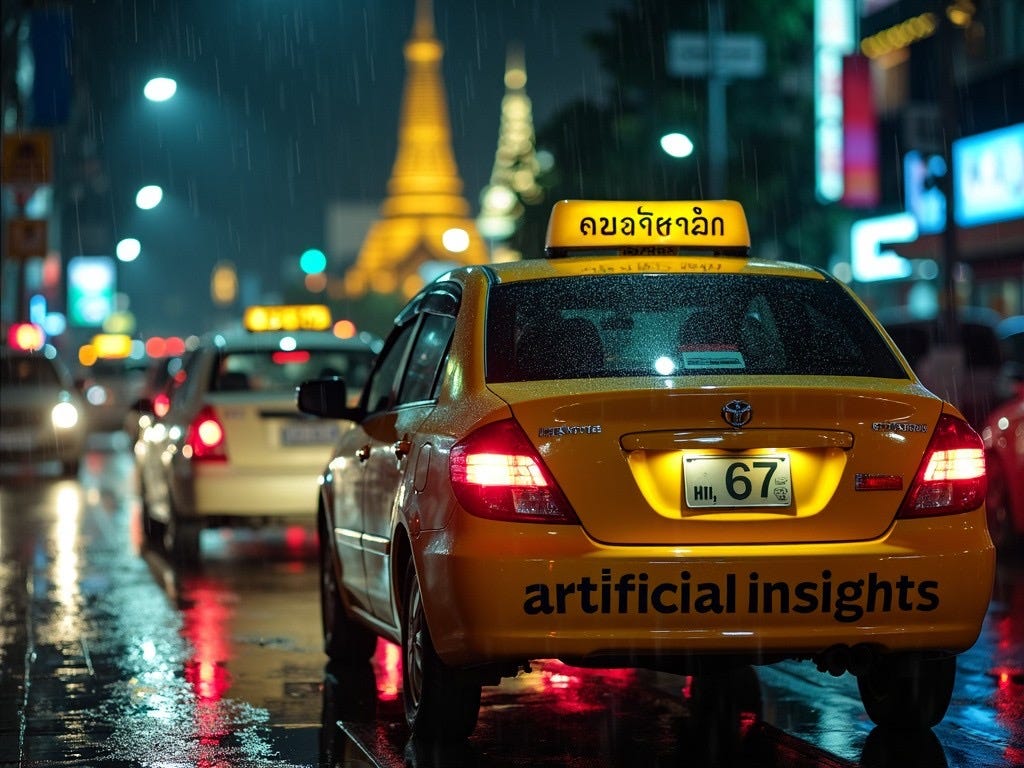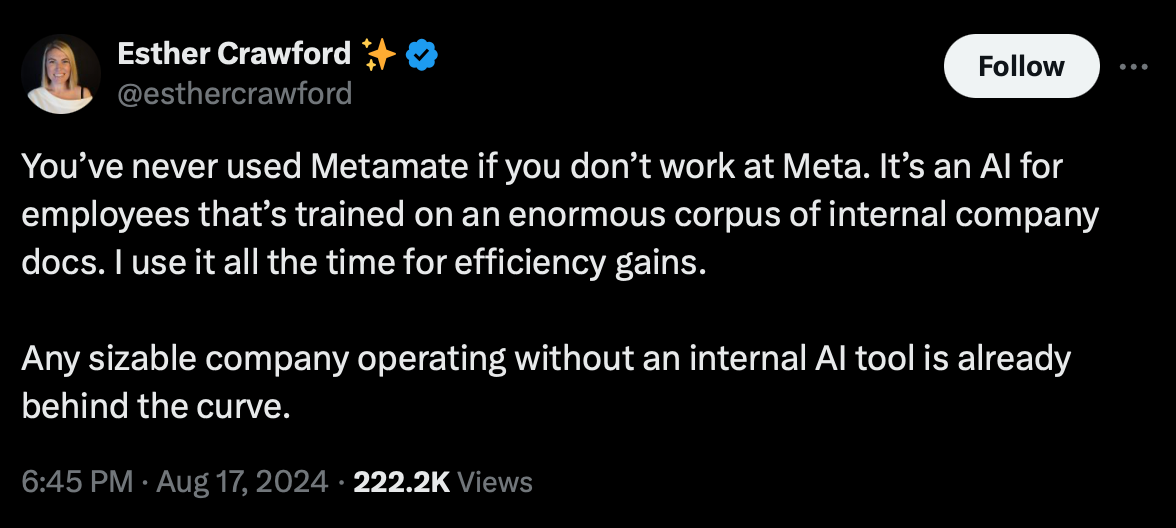How much is too much? (067)
Because you haven’t heard enough AI news today.
Greetings from a humid and busy Bangkok where I have the privilege to talk about centaurs and our trajectory towards AGI for an audience of curious leaders. I’ve been tinkering on an “AI masterclass” the past couple of months and will be sharing the material with an eager cohort learning about the future of consumer trends with other amazing speakers tomorrow.
My next step will be organizing a version of the talk for you. I really want to put together an online meetup for the community in the next month, and sharing a pre-recorded version of the masterclass is something to do in parallel.
The premise of the masterclass is explaining ten concepts I find fundamental to understand the trajectory of AI to an intermediate audience who is already working with it. The concepts build on each other: Exponentials (accelerating returns), Frontiers (what’s state of the art), Centaurs (machine augmentation), Prompts (how LLMs work), Creativity (how LLMs change our abilities), Code (how LLMs gain autonomy), Agents (multiple AIs collaborating), AGI (autonomous systems outperforming us), Risk (what might go wrong) and some conclusions about how to act now. Will share much more soon.
Meanwhile, you should join our incredible WhatsApp community to share your thoughts and learn from likeminded experts. Come say hello!
MZ
PS. I hope the Thai script above the taxi cab image isn’t worse than gibberish. The image model I’m using, Flux, produces excellent text and I double checked in Google and Apple Translate to make sure it’s nothing outrageous.
MetaMates in your office
I think most companies will end up implementing something like Meta's Metamate, a company-wide AI assistant helping their workers. There's almost no info about this on the web, but here's a great thread disclosing a couple of use cases.
Productivity Paradox (39 min)
This is such a good interview by Malcom Gladwell with IBM's CCO (Rob Thomas). 40 min and super insightful if you're working with AI in a professional capacity.
Know your LORAs (4 min)
This is so cool: using control vectors to influence the mood of an LLM output. Amazing UX and demo (by a fellow Brazilian Thiago Duarte).
When an AI researched meditates (57 min)
Interview about animism & AI by the always wonderful Joscha Bach. More highlights than I could possibly describe.
AI Hype Cycles (37 min)
Easily one of the consistently best (AI) podcasts out there, from YC. Always worth a listen for a Bay Area centric perspective on what's going on.
Best of the Best
Last week I cleaned out my link backlog of the past 18 months and two links stood out.
This 9 minute US documentary from 1961 presenting the future risks of thinking machines. Absolutely worth a watch.
Entrepreneur and tech journalist Casey Newton came up with a robust list of principles to follow when reporting on AI:
Be rigorous with your definitions.
Predict less, explain more.
Don’t hype things up.
Focus on the people building AI systems — and the people affected by its release.
Offer strategic takes on products.
Emphasize the tradeoffs involved.
Remember that nothing is inevitable.
I feel like this newsletter adheres to most but not all of these, namely the inevitability bit. Great read.
If Artificial Insights makes sense to you, please help us out by:
📧 Subscribing to the weekly newsletter on Substack.
💬 Joining our WhatsApp group.
📥 Following the weekly newsletter on LinkedIn.
🦄 Sharing the newsletter on your socials.
Artificial Insights is written by Michell Zappa, CEO and founder of Envisioning, a technology research institute.
You are receiving this newsletter because you signed up on envisioning.io or Substack.






The masterclass sounds great. One suggestion, however. Per your Best of the Best line, "Emphasize the tradeoffs involved", all the talk of Exponentials, Frontiers, Centaurs, etc. seems to be lacking representation from tradeoffs.
Yeah yeah yeah, we want capitalism to be infinite growth without pesky things like systemic limits, tradeoffs, and unforeseen consequences. But burning 10-20x the compute energy to perform the equivalent of a Google search with a higher likelihood of hallucination errors, all because it allows us to bypass Google ad enshittification, is going to need better answers than "more power, more compute, more data".
Some of us, if not all of us, are going to have to pay the bill for that eventually.